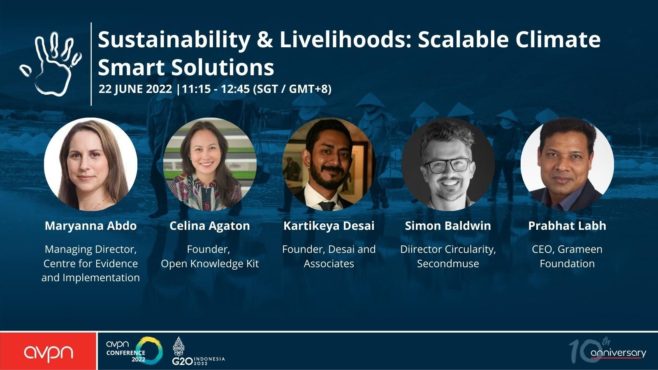
Thanks to the generous support of Julie Ann Wrigley Global Futures Laboratory, Arizona State University Global Institute of Sustainability and Innovation, I’m able to present our Open Knowledge Kit program at special session at the Asian Venture Partner Network’s Global Conference, the Official Social Impact Event for the G20 on June 21-24, 2022.
Here’s our session description:
Early warning weather alerts, real-time traffic maps, ride-hailing services. Technology has quietly become part of our daily lives.
SEAsia is home to the world’s fastest growing e-commerce market. As a result, there is a pressing need to ensure that communities are not left behind in an increasingly digital world.
In this session we will talk about climate smart solutions that contribute to achieving the Sustainable Development Goals (SDGs) of reducing hunger, closing the gender gap and improving environmental management.
Access to technology can level the playing field for struggling rural farmers, new low-cost data collection models result in 17 times higher wages for local communities and an app for informal waste workers can contribute to a clean ocean.
What needs to happen to fully utilize the potential of green tech for our planet and our societies? What can funders do to empower local communities to develop their own solutions? How can bold innovations be fostered?
Key Takeaways:
- How green tech can open a path towards sustainable growth across the spectrum of climate, gender and livelihoods
- Beyond free and open source technologies, placing cross-sector communities at the centre of knowledge stewardship and employment models provides the stability critical to bridge successful policy and program implementation, while dramatically reducing costs and carbon footprints
- Initiatives to improve recovery rates of plastics in the ocean need to take into account the social and economic impacts on informal waste worker